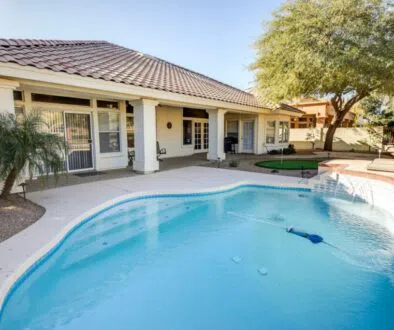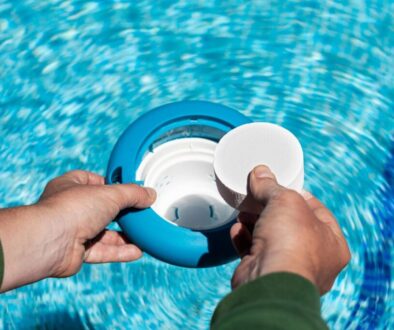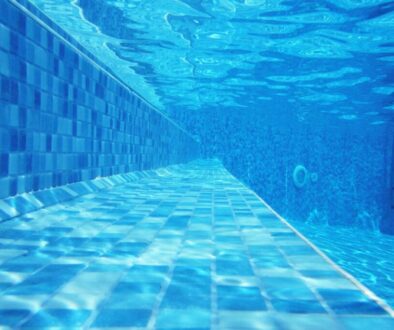The Effects Of Rain In Your Pool And Ways To Fix It
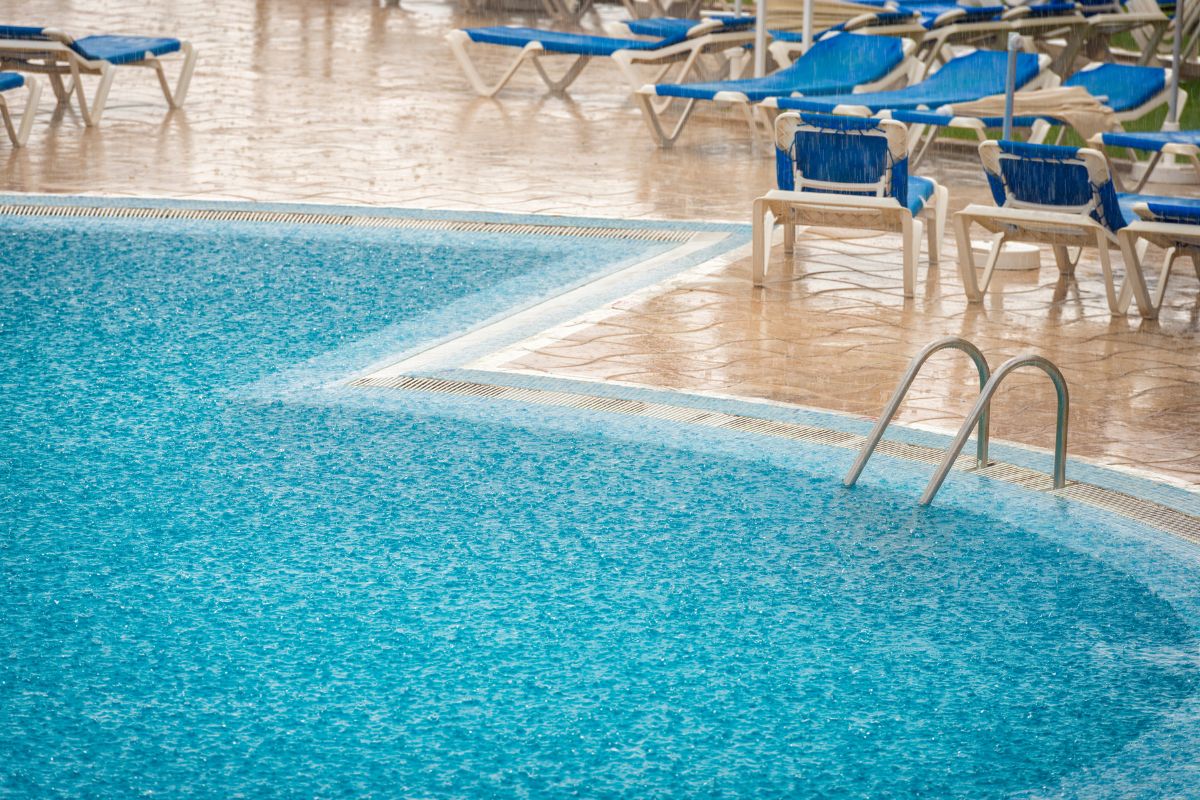
Published April 1, 2024
Rainfall can be a revitalizing natural occurrence, yet it challenges pool owners. In most cases, upholding a safe and pleasant swimming environment requires immediate attention. Understanding these forces is vital for keeping your pool healthy. It ensures it stays clean and safe for fun.
In this article, we’ll take an in-depth look into the impact of rain pool water. Let’s discover proactive measures to counteract these effects.
The Science Behind Rain Water
Rain collects various elements when it falls. These include dirt, dust, spores, and microscopic life forms. They gather as rain travels through the air. This gradual accumulation contributes to rainwater’s slightly acidic nature.
As rainwater reaches your patio or pool, they introduce millions of particles that can affect the chemical balance of your pool. Rainfall is crucial for the ecosystem but poses challenges for maintaining your pool’s water quality.
Effects Of Rainwater On A Pool’s Chemical Balance
How does rain affect pool chemistry? Rainwater combines with pool water, weakening chemicals and changing the chemical balance. This impacts sanitation and water quality. These factors include pH, chlorine levels, and total alkalinity. They’re affected, so we need to fix them to restore balance.
What Does Rain Do To Pool Water?
Rain is a natural phenomenon, yet it can disrupt the water balance for pool owners. Let’s explore the usual effects of rain water in pool.
Water level
Rainfall can raise your pool’s water level. This can cause an overflow and dilute pool chemicals. The dilution may impact the effectiveness of the chemicals in maintaining water quality and balance.
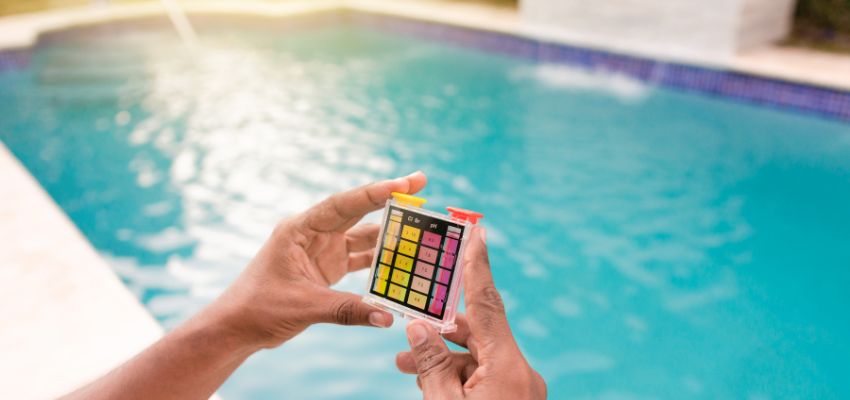
pH
Does rain lower pH in pool? Rain water, with its natural acidity, has the potential to decrease a pool’s pH level. Sadly, this leads to a worse setting. It may harm the pool’s structure and discomfort swimmers due to an imbalance in chemical composition.
Alkalinity
The introduction of rainwater into a pool has the potential to reduce the total alkalinity levels. Doing so leads to a disruption in the delicate pH balance of the water. The imbalance can harm water quality. It may need adjustments to restore good swimming and maintenance conditions.
Hardness
Rainwater has a zero hardness level, meaning that adding it to your pool can lower the calcium levels through dilution. Low calcium levels lead to corrosive water, posing a risk to metal piping, pool fixtures, and appliances. If the calcium levels are too high, the water becomes cloudy. It’s due to having too many dissolved particles. In such cases, adding rainwater can help address this issue.
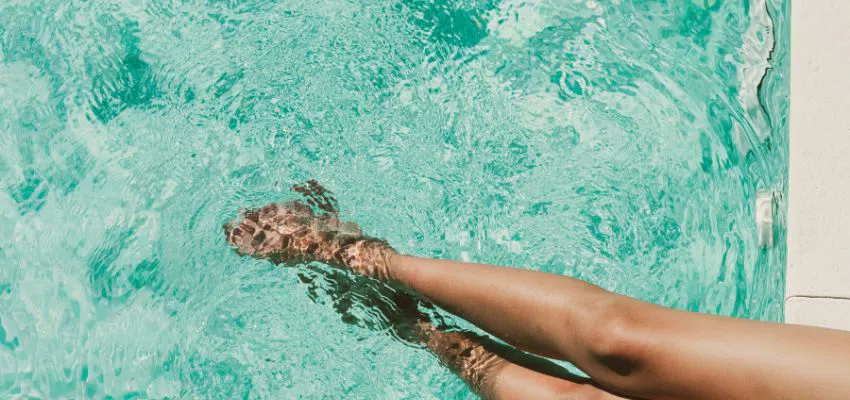
Chlorine
Chlorine levels in pool water tend to decrease when rainwater mixes in. Doing so leads to a drop in the sanitizing power of the pool. The decline in the chlorine concentration may result in a less effective disinfection of the water. Sadly, it can potentially impact the overall cleanliness and safety of the pool environment.
Salt
Rain pool water can decrease the overall salt concentration in saltwater pools, impacting chlorine generation and affecting the pool’s sanitation and maintenance needs.
Step To Address Rainwater In Pool Water
Introducing rainwater into a pool can alter its chemistry significantly. Addressing rainwater problems in your pool requires steps to rebalance the chemicals and enhance water clarity. Here’s a straightforward approach.
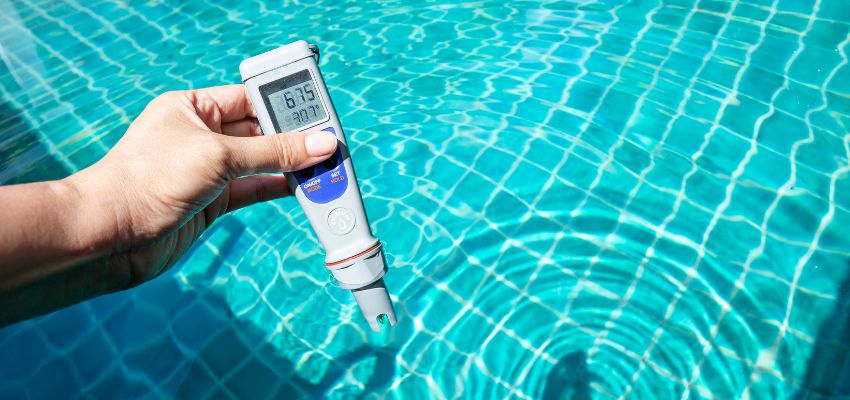
Water Testing
Start by testing your pool water to assess the impact of rain on different chemical levels. Focus on closely monitoring pH, chlorine, alkalinity, and calcium hardness levels.
Adjust The Water Level
If heavy rain has caused your pool to overflow, utilize a submersible pump or the pool’s drainage system to bring the water level back to normal.
Balance The Chemicals
- pH and alkalinity. Use products to adjust pH and alkalinity levels. Target a pH range between 7.4 to 7.6 and an alkalinity level of 100 to 150 ppm.
- Chlorine. Dilution from rain can significantly reduce chlorine levels. To restore them to a safe range (1-3 ppm for standard pools; slightly higher for heavily used or saltwater pools), shock the pool.
- Calcium hardness. If necessary, adjust the calcium hardness to 200 to 400 ppm to safeguard pool surfaces and maintain water clarity.
Shock The Pool
Although chlorine levels seem normal, shocking the pool after heavy rain helps kill contaminants. These include bacteria, algae spores, and organic debris from rainwater.
Run The Filter
Extend filtration time to eliminate particles and impurities brought in by the rain. Running the filter continuously for 24-48 hours aids in purifying the water effectively.
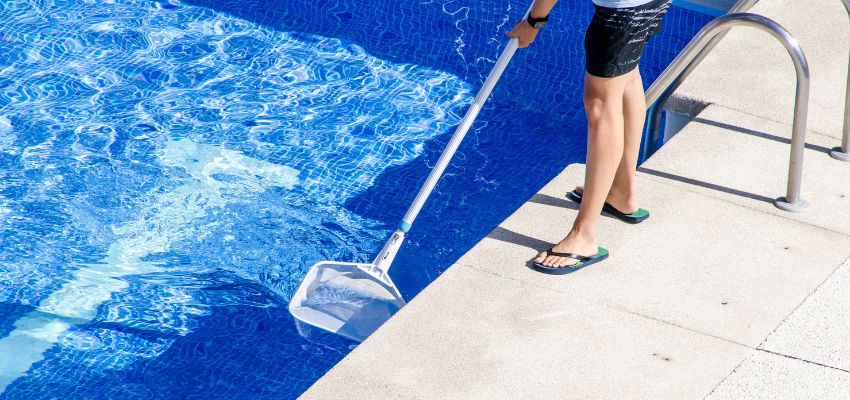
Clean The Pool
Use a pool net to remove surface debris. Also, scrub the pool walls and floor to loosen algae and dirt that may cloud the water. For best results, it may be best to consult reputable Boca Raton pool cleaners.
Inspect And Thoroughly Clean The Skimmer And Pump Baskets
Ensure that the system is free of debris. A proper flow rate is essential for efficient filtration and circulation.
Retest The Water
After following the above steps, let the pool circulate for at least 24 hours. Then, retest the water to check that all chemical levels are good. Adjust as needed.
Monitor And Maintain
In the days following the rain, vigilantly observe the pool’s chemical balance and clarity. Rain can have lingering effects, necessitating additional adjustments.
Adhering to these guidelines can effectively mitigate the impact of rain on your pool, ensuring it stays healthy, balanced, and ready for use.
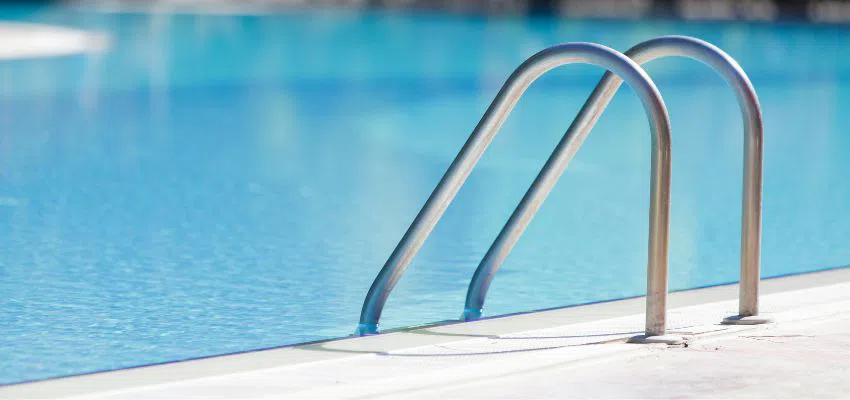
Importance Of Maintaining Your Pool’s Ph Balance
Maintaining the optimal pH balance in a pool or spa is essential for several reasons. It helps prevent equipment and surface corrosion and plays a vital role in ensuring effective sanitation practices.
A balanced pH level also makes swimming better, more fun, and more comfortable. Moreover, regulating the pH helps prevent the buildup of scale deposits and contributes to sustaining pristine water quality.
Frequently Asked Questions About Effects Of Rainwater In A Pool
Does rainwater affect other parts of the pool?
Corrosive water, often acidic or high in minerals, can cause damage over time. It corrodes metal surfaces, impacts the lifespan of pool equipment like pumps and filters, and can lead to deterioration in pool lights and ladders. Sadly, it poses safety hazards in the long run. Regular water testing and maintenance are vital to prevent these issues and maintain the lifespan of your pool infrastructure.
Will rainfall impact the calcium hardness in my outdoor pool?
The rain itself might not affect these levels. But runoff from spaces like gardens or roofs could add minerals such as calcium and magnesium. The influx has the potential to raise the levels of dissolved solids in the pool water. This shows the need to consistently monitor water quality to ensure safe and pleasant swimming.
How does rainfall impact saltwater pools?
Rainfall dilutes salt. It can affect the chlorine generators critical for water quality. This highlights the vital role of monitoring and adjusting chlorine levels when it rains.
Can rainfall enhance algae growth in outdoor pools?
Rainwater promotes algae growth by diluting chlorine and providing nutrients, which thrive in diverse elements.
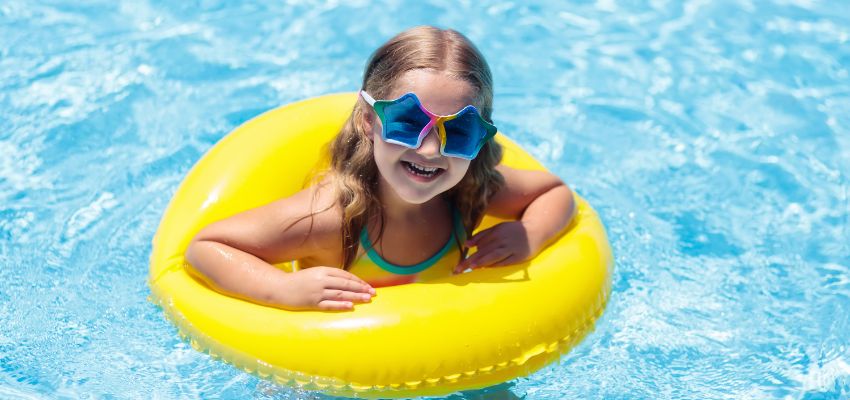
Preserve Your Pool’s Integrity After Rainy Days
Rain pool water can impact your pool in many ways. But by proactively maintaining it and quickly addressing weather changes, you can keep your pool in excellent condition. Regular testing is vital, as are necessary adjustments and proactive cleaning. They keep your pool a refreshing oasis, no matter the weather. Test, adjust, and clean for a year-round oasis experience.
Hire Boca’s Favorite Pool Builders
Excel Pool and Patio Solutions is your trustworthy provider of pool services in Boca Raton. We are experts in pool and patio remodeling and can handle your resurfacing needs as well. Our technicians are vetted and trained for your guaranteed satisfaction. Get to know us by browsing our website or reaching out to us with any questions.
Contact our team today to request a free estimate for pool construction, maintenance, repairs and more.
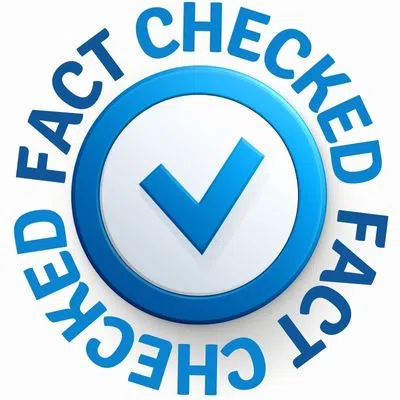
Fact Checked By Experts
This is original content and has been diligently fact checked by our internal team of experts. Discover more about the rigorous editorial standards we uphold for our website here.

About The Author
Hello! I am Corinne, a graduate of Riverside College. My career has evolved into focusing on writing, where I deliver high-quality and meticulously researched content. I have a proven track record of developing helpful articles that engage a wide variety of readers.

